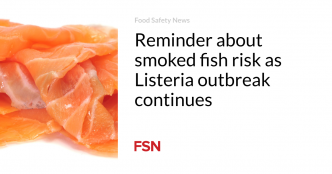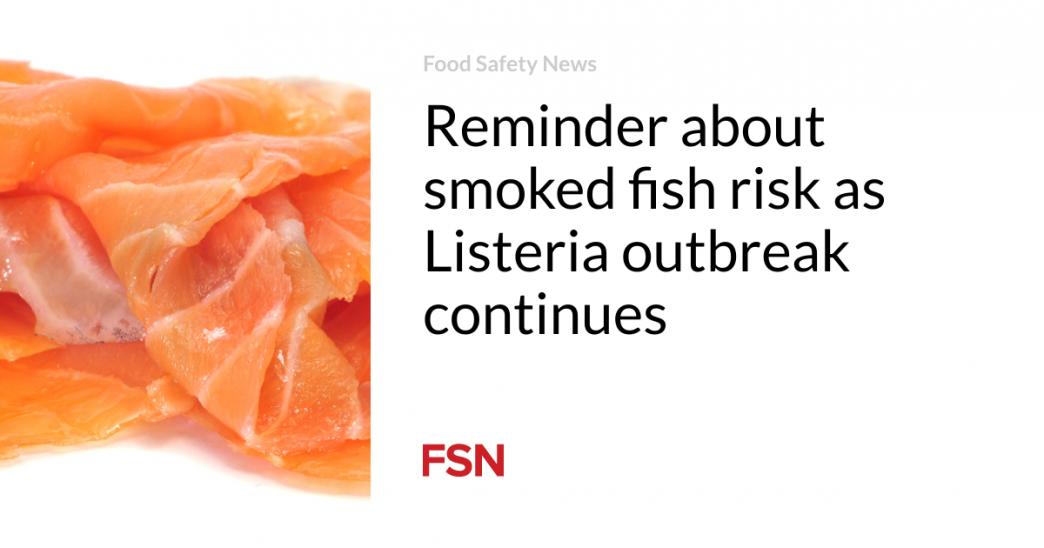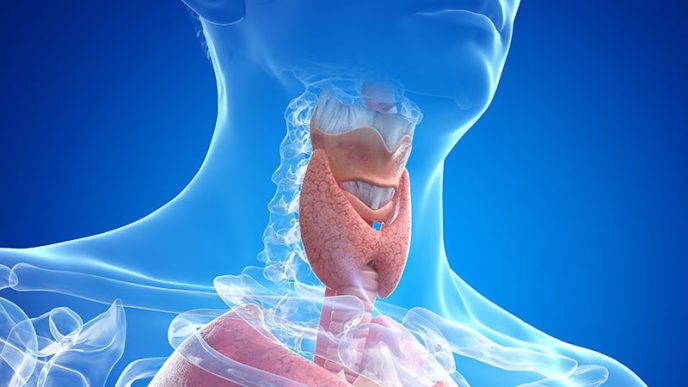Further cases in a deadly Listeria outbreak have prompted authorities in the United Kingdom to again warn vulnerable people about the risks of eating cold-smoked and cured fish.
Since 2020, there have been 24 cases of listeriosis across the UK. Four people have died, two of which had Listeria monocytogenes listed as a cause of death, along with other underlying health conditions.
The Food Standards Agency (FSA), Food Standards Scotland (FSS), the UK Health Security Agency (UKHSA), and Public Health Scotland (PHS) are investigating the outbreak.
A previous update revealed 19 cases of listeriosis in England and Scotland. Most patients were above 65 years old but one was a pregnant woman. The majority reported eating smoked fish before falling sick.
Positive product testing
There is no current recall of products but in December 2022, Lidl recalled Deluxe Oak Smoked Scottish Louch Trout and Lighthouse Bay Smoked Trout Trimmings, produced by St. James Smokehouse in Scotland. Product testing found Listeria monocytogenes that matched the outbreak strain. All samples positive for the outbreak strain have been within the permitted limit of 100 colony forming units per gram (cfu/g).
Mitigations put in place since the start of the outbreak include the addition of consumer messaging on Lidl smoked fish product labels, and sampling and surveillance of Listeria in smoked fish. FSA and FSS have also produced a risk assessment.
As part of data released following a freedom of information request submitted to Food Standards Scotland on behalf of St. James Smokehouse in 2023, 48 smoked salmon, smoked salmon trimmings and smoked trout samples from the company contained Listeria monocytogenes.
Only two positives were at 20 cfu/g and none were above this level. One smoked salmon isolate and one trout isolate were a different type of Listeria monocytogenes than the outbreak strain.
A swabbing exercise at Cooke Aquaculture, a producer of raw fish supplied as the incoming ingredient to St James Smokehouse, revealed no positives in 142 samples taken from two sites. A check on fish from other producers and retailers detected Listeria in 25-grams eight times in smoked salmon and once in smoked trout at under 10 cfu/g.
Advice for vulnerable people
The advice to avoid ready-to-eat cold-smoked or cured fish because of the risk of Listeria is aimed at pregnant women and those with a weakened immune system. It also applies to anyone preparing or buying food for vulnerable people.
With the festive season approaching, consumers often eat products they don’t normally, or have more of certain products, such as cold-smoked fish like smoked salmon, smoked trout, and gravlax.
“We understand that smoked fish is a popular choice during the festive season, and for many, with the proper precautions, it can be enjoyed safely. However, we strongly encourage those at higher risk to either avoid cold-smoked fish or first cook it until steaming hot all the way through. This will ensure that any Listeria present in the product is killed before it is eaten,” said Linden Jack, head of food, feed and incidents policy unit at the FSA.
Cold-smoked fish such as smoked salmon or trout, and cured fish such as gravlax, have not been fully cooked during the production process to kill any Listeria present. Cold-smoked fish is normally labeled as “smoked” fish. Ready-to-eat cold-smoked fish typically comes in thin slices, and it can be eaten cold. It may also be found in sushi.
“While smoked fish has a higher risk of carrying Listeria, the overall risk to the population is very low. However, some people are more likely to get a serious infection including those who are pregnant and those with weakened immune systems. The risk also increases with age,” said Dr. Gauri Godbole, deputy director gastrointestinal infections food safety and one health at UKHSA.
“Those who are more vulnerable can be at risk of severe illness such as meningitis and life-threatening sepsis. Listeriosis in pregnancy can cause very serious illness in mothers and their babies.”
(To sign up for a free subscription to Food Safety News, click here.)














